
Every day, you’re paying a tax that Congress never voted on, a tax that’s growing rapidly heavier. Yet you may not even know when you’re paying this tax because it goes by another name: tariffs. It is baked into the prices of products, from sneakers to semiconductors to compression springs, that are manufactured abroad or that use imported components or materials—that is, a large portion of the things Americans buy.
As the presidential election approaches, all signs point to higher tariffs on American imports—no matter who wins. (While Vice President Kamala Harris was the clear favorite to be the Democratic nominee as this article went to press, it’s safe to say that any potential rival would have a similar trade agenda.) The consequences will reach far beyond those ballooning hidden taxes that Americans pay. They will also influence global geopolitics and touch every business and consumer in the U.S., plus billions more worldwide.
The trend is still hard to believe, for those who have been following the issue. After decades of working for freer trade worldwide, the U.S. has reversed course, with both parties on board. The two sides don’t offer identical trade proposals—Donald Trump’s would be much more severe—but broadly speaking, this is a rare issue on which both sides of the aisle are aligned.
Both parties are pursuing this agenda to assert their commitment to protecting American industry and jobs from overseas competition—but business mostly doesn’t like it, especially companies selling consumer goods to price-sensitive customers already wary of inflation. “Unfortunately, there does seem to be this movement within both parties to turn insular and turn away from trade in ways that will be economically damaging,” says Neil Bradley, chief policy officer at the U.S. Chamber of Commerce. “They’re going to end up hurting average Americans.”
This story is from the August - September 2024 edition of Fortune US.
Start your 7-day Magzter GOLD free trial to access thousands of curated premium stories, and 9,000+ magazines and newspapers.
Already a subscriber ? Sign In
This story is from the August - September 2024 edition of Fortune US.
Start your 7-day Magzter GOLD free trial to access thousands of curated premium stories, and 9,000+ magazines and newspapers.
Already a subscriber? Sign In
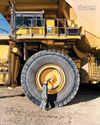
THE NEW GOLD RUSH
Gold prices have soared amid global uncertainty and a central-bank-driven buying spree. But this time, the gold mining industry looks very different.

A New Season for Giving
As the PGA TOUR kicks off its 2025 season alongside its sponsors in Hawai'i, the organization is continuing to make an impact in local communities.

WELCOME TO ELONTOWN, USA
The small town of Bastrop, Texas (pop. 12,000), has become a home base for Elon Musk's business empire. What comes next is anyone's guess.
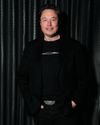
100 MOST POWERFUL PEOPLE
Our inaugural, authoritative ranking of the leaders whose innovation and impact have elevated them to the top of the business world.

ARE CEO SABBATICALS THE ULTIMATE POWER MOVE?
WHEN VENTURE capitalist Jeremy Liew and his wife were dating, they talked about how one day they would take a year to travel the world. \"That's how we'd know we'd made it,\" Liew says.
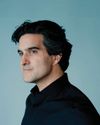
WHAT ARE THE BEST METRICS FOR MEASURING A STARTUP'S POTENTIAL?
IN HIS 2012 ESSAY \"Startup = Growth,\" Paul Graham talks about a 5% to 7% weekly growth rate as table stakes for startup success. If you're growing 10%, he says, you're doing \"exceptionally well.\"

TECH POLYMARKET'S ELECTION ACCURACY MADE SHAYNE COPLAN A STAR-BUT AN FBI RAID POINTS TO TROUBLE AHEAD
IN NOVEMBER, Shayne Coplan had a week he'll remember for the rest of his life: He got a phone call from the highest echelons at Mar-a-Lago. He went on TV for the first time. And his New York City apartment was raided by the FBI.
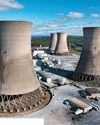
WHY BIG TECH IS THE NUCLEAR INDUSTRY'S NEW BEST FRIEND
OVER THE PAST several years, Big Tech firms like Google and Microsoft have trumpeted ambitious plans to go carbon-neutral, or even carbon-negative, by 2030. But then the generative-AI boom came along and threw a giant wrench in their plans.

WHAT PALMER LUCKEY, THE MAN REVOLUTIONIZING WARFARE, IS AFRAID OF
PALMER LUCKEY, the founder of the $14 billion Al-powered weapons startup Anduril, has become the face of change in the defense industry.
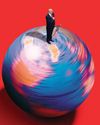
GLOBAL BUSINESS BRACES FOR TRUMP 2.0
AROUND THE WORLD in 2024, voters chose change: in South Africa, France, Britain, and Japan. But nowhere does the anti-incumbent trend matter more than in the United States.